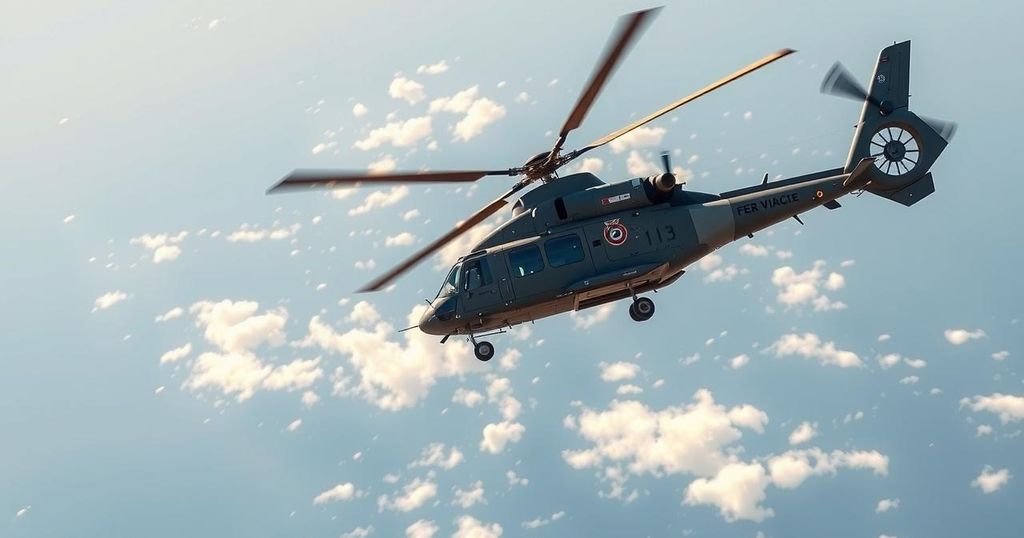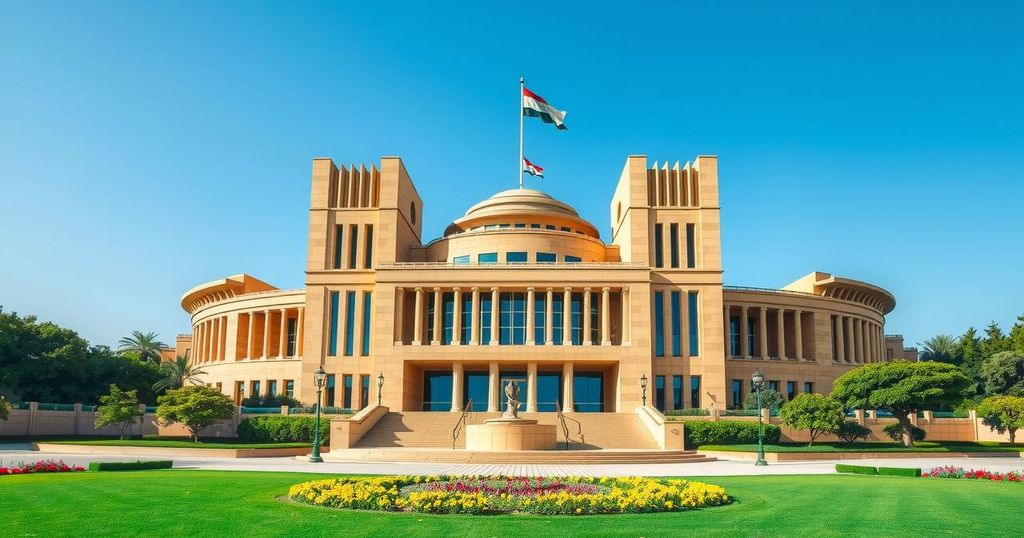Chile Acknowledges Military Helicopter Incident in Argentine Airspace
Chilean authorities admitted to a military helicopter mistakenly flying into Argentine airspace, with Foreign Minister Alberto van Klaveren emphasizing that it was a brief incident handled through diplomatic channels. The leaders of Chile and Argentina face recent tensions, but there is a commitment to maintain a cordial relationship despite occasional conflicts.
Chilean authorities acknowledged on Monday that a military helicopter had inadvertently entered Argentine airspace last Friday, specifically in the Patagonian province of Santa Cruz. Foreign Minister Alberto van Klaveren characterized the occurrence as an “error” and assured that it was addressed through appropriate diplomatic proceedings. Argentina had sent a note of inquiry on the matter, to which a response was duly provided.
Minister van Klaveren explained that the chargé d’affaires from the Chilean embassy in Buenos Aires engaged with officials from the Argentine Foreign Ministry’s South American Directorate to convey the response note. He expressed acknowledgment of the mistake, confirming there had been an unauthorized incursion into Argentine airspace, although it was described as an extremely brief incident occurring during aerial operations.
The Foreign Minister also referenced a past incident involving mistaken construction by Argentina on Chilean territory, highlighting the importance of cooperation and dialogue for resolving such disputes. He reiterated Chile’s commitment to “maintaining the normalcy of these relations” as directed by President Gabriel Boric Font, who aims to address recent tensions with Argentine President Javier Milei’s administration.
On the diplomatic front, Boric convened with Minister van Klaveren and Chile’s Ambassador to Argentina, José Antonio Viera-Gallo, reinforcing that their bilateral relationship transcends temporary disagreements between their leadership. However, tensions flared recently when Argentine Economy Minister Luis Toto Caputo criticized Boric, labeling him a Communist, which was supported by President Milei, leading to further diplomatic exchanges. Chile responded by submitting a formal protest to the Argentine ambassador in Santiago, with Boric requesting greater humility from Milei in his public discourse.
Overall, while addressing the pilot error, the Chilean government remains focused on restoring and stabilizing diplomatic relations with Argentina amidst challenging exchanges.
The incident involving the unauthorized flight of a Chilean military helicopter into Argentine airspace is a significant episode in the historically complex relations between these two South American nations. The acknowledgment of this mistake by Chilean officials is indicative of the ongoing diplomatic efforts to maintain a cordial relationship, despite occasional misunderstandings and tensions. Previous incidents, such as Argentina mistakenly constructing solar panels on Chilean territory, highlight the need for clear communication and cooperation. The relationship between Presidents Gabriel Boric of Chile and Javier Milei of Argentina is under scrutiny as they navigate these diplomatic challenges, particularly in light of recent public criticisms from Argentine officials towards Boric.
In conclusion, while the incident of the military helicopter incident reflects a momentary lapse in diplomatic protocol, it also paves the way for renewed dialogue between Chile and Argentina. Both nations acknowledge the importance of effective communication and collaboration to mitigate misunderstandings. As leaders like Presidents Boric and Milei work to navigate their respective political landscapes, their commitment to addressing differences is crucial for the stability of bilateral relations moving forward.
Original Source: en.mercopress.com




Post Comment